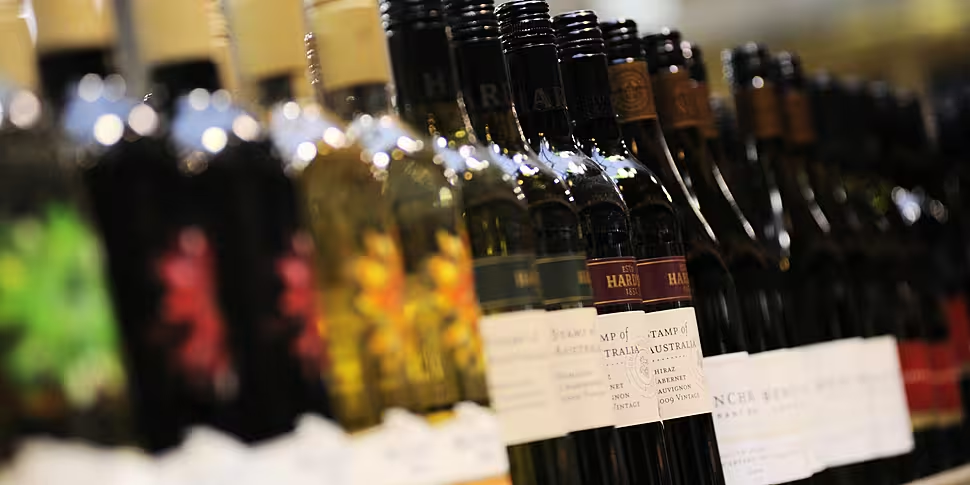The long-planned introduction of minimum unit pricing for alcohol kicks in from Tuesday January 4th.
The change comes as part of the Public Health (Alcohol) Bill, and is aimed at targetting “products that are cheap relative to their strength”.
It’s one of the last measures of the act to come into force, and it follows similar rules that have been introduced in the likes of Scotland.
Health Minister Stephen Donnelly says the law is designed to "reduce alcohol consumption, to reduce the harms caused by the misuse of alcohol and to delay the initiation of alcohol consumption by children and young people".
Some supermarket alcohol prices are expected to rise significantly as a result of these changes.
The Convenience Stores and Newsagents Association (CSNA) says some prices will be 10-15% more, while others will rise by 30-40%.
However, the price of some products - such as large slabs of beer sold at promotional prices - could more than double as a result of the changes now being introduced.
Wholesalers and distributors are also said to be changing some of their packaging, with some sizes set to be ‘delisted’ in response to the changes coming into force.
Pricing
Under the new rules, alcohol pricing will be based on the grams of alcohol it contains.
The minimum will be 10c per gram - meaning alcohol will not be able to be sold beneath that price.
The HSE says the change means the minimum price for one ‘standard drink’ will be €1.
A standard drink would typically amount to the likes of a half-pint of beer or a small glass of wine.
Some examples of minimum unit pricing include:
- A can of beer (500 mls, 4.3% ABV) - €1.70
- A bottle of wine (750 mls, 12.5% ABV) - €7.40
- A bottle of spirits (700 mls, 40% ABV) - €22.09
Lidl, for example, is currently advertising a bottle of white wine (11% ABV) for €3.92. Under the new rules, the minimum price would rise to at least €6.50.
Supervalu, meanwhile, is today advertising 24-packs of beer cans at €18. From tomorrow, those will no longer be able to be sold at prices below €40.
The impact is set to be much more significant for low-priced products - more expensive bottles of beer, wine, whiskey or other alcohol products are likely already priced above the new minimum.
Reaction
Eunan McKinney of Alcohol Action Ireland supports the measure, and he spoke to Late Breakfast about what the changes will mean.
He explained: “As of midnight tonight, minimum unit pricing will be put in place - ensuring there will be a minimum price set for a gram of alcohol. Alcohol will no longer be able to be sold beneath that price.
“Alcohol has been used as essentially a footfall driver into convenience stores and supermarkets, and has been sold at exceptionally cheap prices.
"This is endeavouring about trying to bring about a change in that - we know when alcohol is that cheap, it does fuel excessive drinking and especially binge drinking.”
Vincent Jennings, CEO of the CSNA, says his group did not oppose this section of the legislation - stressing they are not objecting to the introduction of minimum unit pricing.
However, they have a “real problem” with the timing - as there was a previous pledge it would be done at the same time as Northern Ireland.
He said: “In May, everything changed. People will [now] be buying in the North, and they will be buying more than they need.
“We also have what wasn’t even considered at the time of the bill - duty-free between Ireland and the UK. The shipping companies are already reporting 500% increase in the purchase of duty-free.
“It’s not the concept - it’s the timing.”
He believes the demand for cheap alcohol is simply going to shift from shops in the Republic to shops in the North - at least until similar rules come into force there as well.









